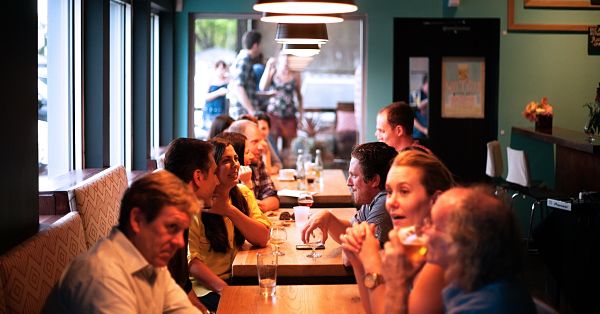 This is the question Joshua Jipp asks in his book Saved by Faith and Hospitality.
This is the question Joshua Jipp asks in his book Saved by Faith and Hospitality.
What do you think: Is it genuine unity achievable with diversity in your church?
Here are some opening questions of Jipp:
Is it possible to have real difference and diversity in our churches without this leading to division? We all know that the church has been afflicted by all kinds of rivalries, schisms, and divisions. Peter Leithart states the problem well: “Churches are set up on conscious opposition to churches from other traditions. Pastors preach against other churches as much as from the text of Scripture. Theologians … magnify slight divergences in formulation and shape entire theological systems to reinforce the fact that we are not them.” On a broader cultural level, Robert Bellah has observed that despite “all the lip service given to respect for cultural differences, Americans seem to lack the resources to think about the relationship between groups that are culturally, socially, or economically quite different.”
Two scholars from two wings of the church pose the same question, so Jipp asks it again:
The question arises: is unity amidst inevitable diversity even possible? Can churches embrace the Bibles vision of the unity (not uniformity) of God’s people as those marked as recipients of God’s hospitality without simultaneously forcing ethnic, cultural, and/or religious minorities to assimilate into majority culture definitions of Christianity.
Over to you: I’d like to hear how much diversity you have in your church?
My friend and Northern DMin student, Derwin Gray, is forming multi-cultural churches; he knows it can be done because at Transformation Church it is actually happening. Many progressives and many conservative talk diversity but their churches are tied up with uniformity and sameness.
The first genuine question here is this one: Can we dwell in fellowship and unity with other Christians, real Christians? For the moment, forget dwelling together in society with one another. We must begin with whether we have the moral virtue and theological capacities to find unity with other Christians. Does your church have the virtues of unity and fellowship across lines of diversity?
Read the Bible from front to back and you will agree with Jipp’s conclusion: “We could go on, as many other passages and theological doctrines support the Bibles vision of the unity of God s people even amidst difference. But the point is that the Bible—or at least significant portions of the Bible—offers a vision of human identity that acknowledges heterogeneous and significant social differences. And this is a good thing, for despite the fact that all humans obviously share some kind of common human existence, we are clearly irreducibly different in many ways from each other: gender, race and ethnicity, culture, political views, theological commitments, wealth, profession, and social status.”
The big idea for Jipp is this: the God we worship is a God who crosses all boundary lines to provide the grace of hospitality, so the people of God who worship that God is designed to do the same. [SMcK: down with the homogenous church principle.]
In other words, cultural, ethnic, status, and even some level of theological differences continue in Paul’s churches, but the fundamental feature of individual and ecclesial identity, and that which enables the church to see each other as family and friends, is their shared experience of divine hospitality, namely, God’s gracious extension of welcome and friendship into his family.
One of the pushbacks to my own A Fellowship of Differents has been what some have called an absence of boundaries. My response? Really? That’s our problem? Sorry, but our problem today is not porous boundaries; our problem today is rigid boundaries that have created fellowships of the nothing but the sames. [By the way, the price on my book in this link in ppb is, well, they might as well give it away!]
The fellowship in the Pauline churches is not based on similar thinking but 0n their being siblings in Christ by God’s grace. There’s the foundation; there’s the condemnation of our fellowship of the sames.
Unity with diversity is Christoformity. Jipp:
Further, given that God’s extension of friendship to us has taken place in the other-regarding and self-abasing act of Christ’s humiliation and death on the cross, built into our shared identity is the willingness to hold loosely to our own personal, cultural identities and preferences and to consider the good and the edification of one another—and precisely those with whom we may disagree—above our own good and preferences.











